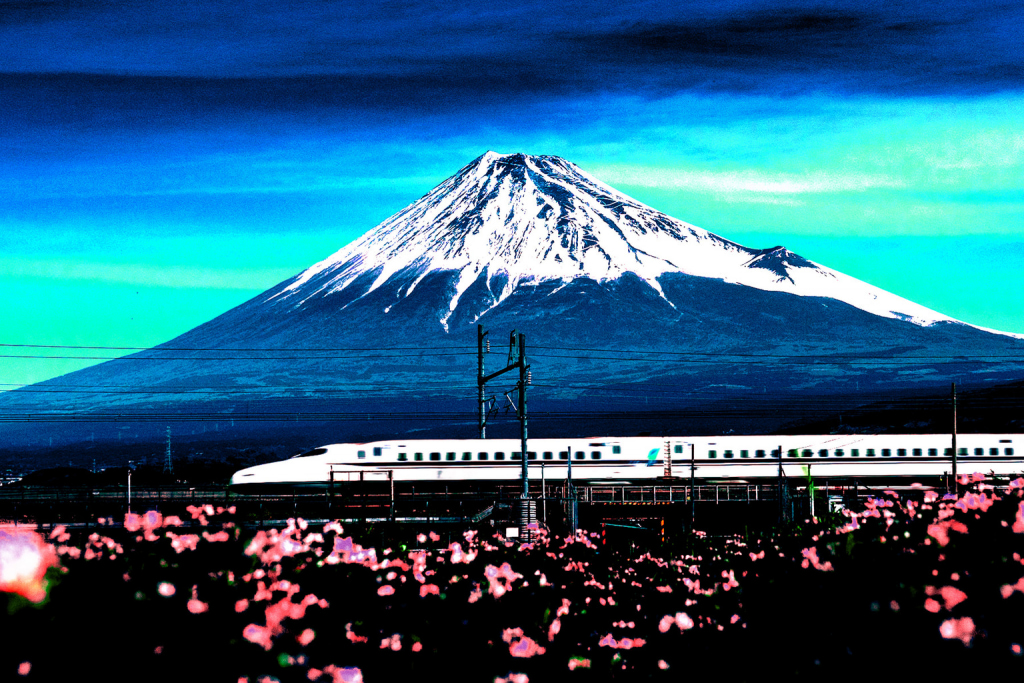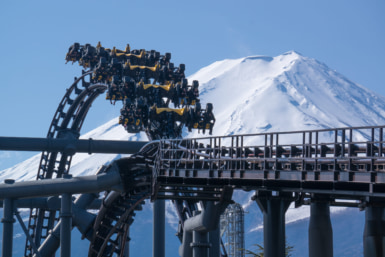Appropriately for a movie titled Bullet Train, David Leitch’s latest action comedy gives you plenty of bang for your buck. For the price of just one ticket, you get to see Brad Pitt, Hiroyuki Sanada, Michael Shannon, Zazie Beetz and other big Hollywood names acting out up to six different stories in one movie.
Based on the novel Maria Beetle by Kotaro Isaka (later translated into English as Bullet Train), the movie tells the story of a group of professional thieves and assassins pursuing their own goals aboard a Shinkansen traveling from Tokyo to Kyoto. Most of the characters’ ethnicities have been changed from Japanese to American, British, and beyond, in a move that was condemned by the Japanese American Citizens League (though the author didn’t seem to mind). However, underneath it all, the bones of the story stay mostly faithful to Isaka’s novel. But then the movie adds to it.
By including a subplot about a Russian who rises through the ranks of the yakuza, Bullet Train brings to it a lot of elements of Martin Zandvliet’s 2018 thriller The Outsider, starring Jared Leto. And with the former’s Japanese setting being ultimately reduced to a few over-stylized backgrounds, huge parts of the movie feel eerily similar to Guy Moshe’s action film Bunraku (2010).
Add to that a mix of ultra-violence presented in farcical ways and characters engaging in the kind of verbal jousting straight from Guy Ritchie’s movies and you may start to worry that Bullet Train is a bit unfocused. And we’re still not done listing all of its apparent influences.
Although definitely not a musical, music plays a big part in Leitch’s film, with a lot of the players and the action moving to the beat of the soundtrack. Everything occasionally feeling like a big-budget music video… Just like Jeymes Samuel’s 2021 “musical experience” Western The Harder They Fall.
And then there is the John Wick connection. A big part of the plot of Keanu Reeves’ action film was actually given away early on through a clever Easter Egg where a background character is shown reading the book Shibumi. The 1979 novel by Trevanian (a pseudonym of Rodney William Whitaker), when reduced to its most basic elements, is about a highly skilled assassin fighting Russians, using everyday objects as weapons and even killing some of his enemies with a pencil, which is what happens in John Wick.
However, the book also has a strong connection to Japanese culture, which wasn’t really there in the 2014 film. It’s definitely there in Bullet Train, which similarly features Russian-fighting assassins using everyday objects as weapons, one of whom (played by Joey King) is also shown reading Shibumi in one scene.
In 99 percent of cases, such a mishmash of ideas and inspirations would be a recipe for disaster and total tonal whiplash but Leitch and screenwriter Zak Olkewicz make it work with a few smart choices.
For one, they didn’t make Pitt the hero of the movie. His face may be on all of the posters but he’s not your typical heroic protagonist who saves the day in the end. Instead, Pitt’s character, a mercenary codenamed Ladybug, is a self-pitying whiner who constantly goes on about his bad luck. Pitt just disappears into the role because he is, at heart, a character actor who for too long was made to play leading-man roles.
To be clear, he always does a good job as the hero protagonist, but give him a quirky oddball to play with and he will bring his absolute A game to the table, just like in Bullet Train. His exceptional performance helps anchor the movie and keep it from tearing itself apart with all of its different nods and references to other productions.
Second, the movie prepares the audience early on for its unique blend of styles and tones. It starts with a dramatic scene of a gangster coming to terms with his son’s near-fatal accident before suddenly cutting to a neon title card and a Japanese rendition of “Stayin’ Alive.” This tells you straight away that the movie is going to be making a lot of interesting choices.
Bullet Train also really turns up the humor, and it’s what allows it to get away with its impossible characters and a blender approach to scriptwriting. Yes, it does seem unfocused at times and doesn’t fully work here and there, but it’s hard to stay mad at a film that made a bottle of water one of its main characters. It makes sense in context.
That being said, it’s perfectly understandable if you can’t get into the movie because of its chaotic nature and the many liberties it takes with presenting Japanese culture to Western audiences.
Ultimately, Bullet Train is a circus show where a blood-soaked clown skillfully juggles a bunch of ideas and Hollywood A-listers against a hastily-painted backdrop of Mount Fuji. And then the entire circus explodes in a great big action-packed fireball. If that description piqued your interest, Bullet Train might just be the movie for you. If not… nobody would blame you.
Bullet Train is currently being screened in theaters across Japan.








